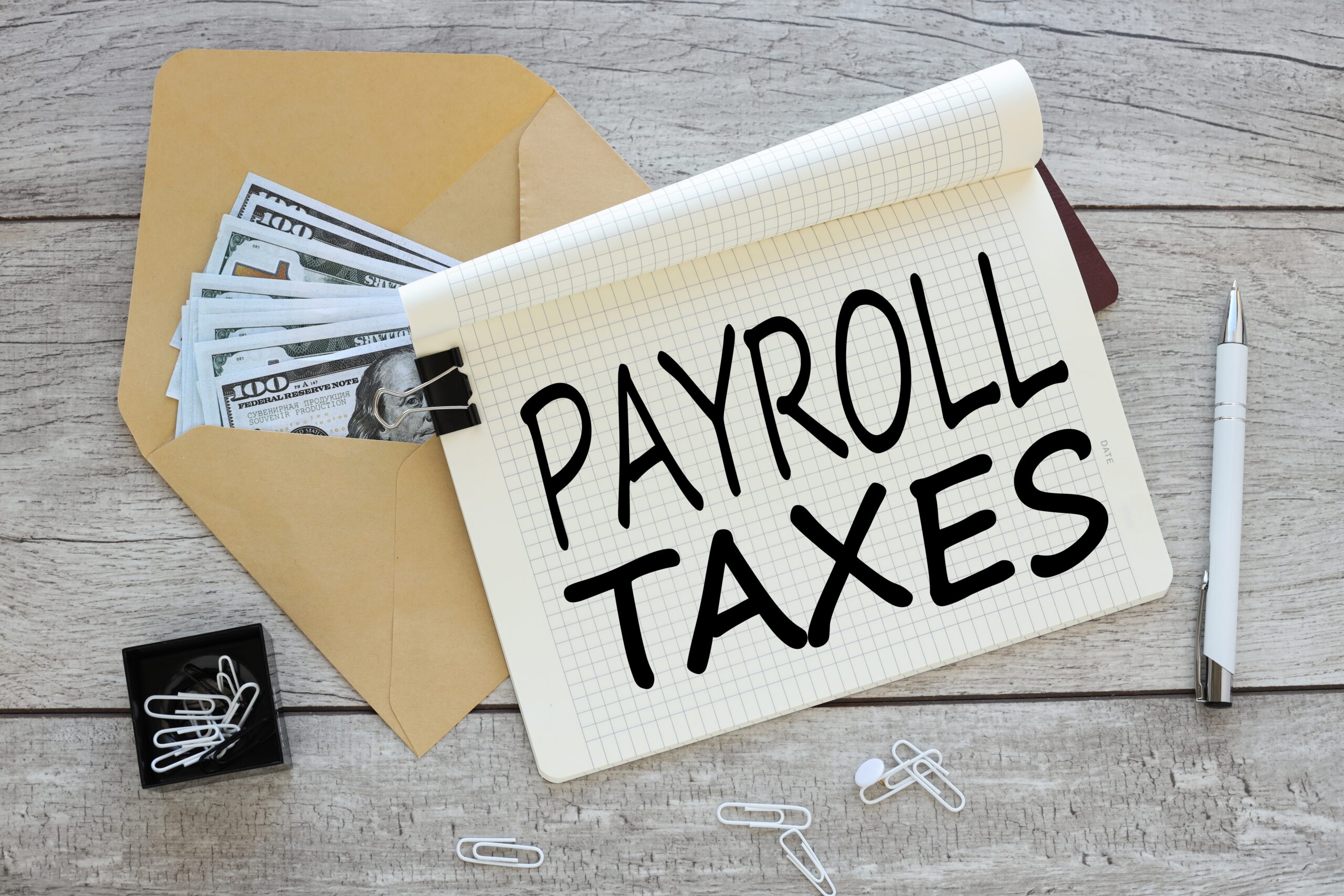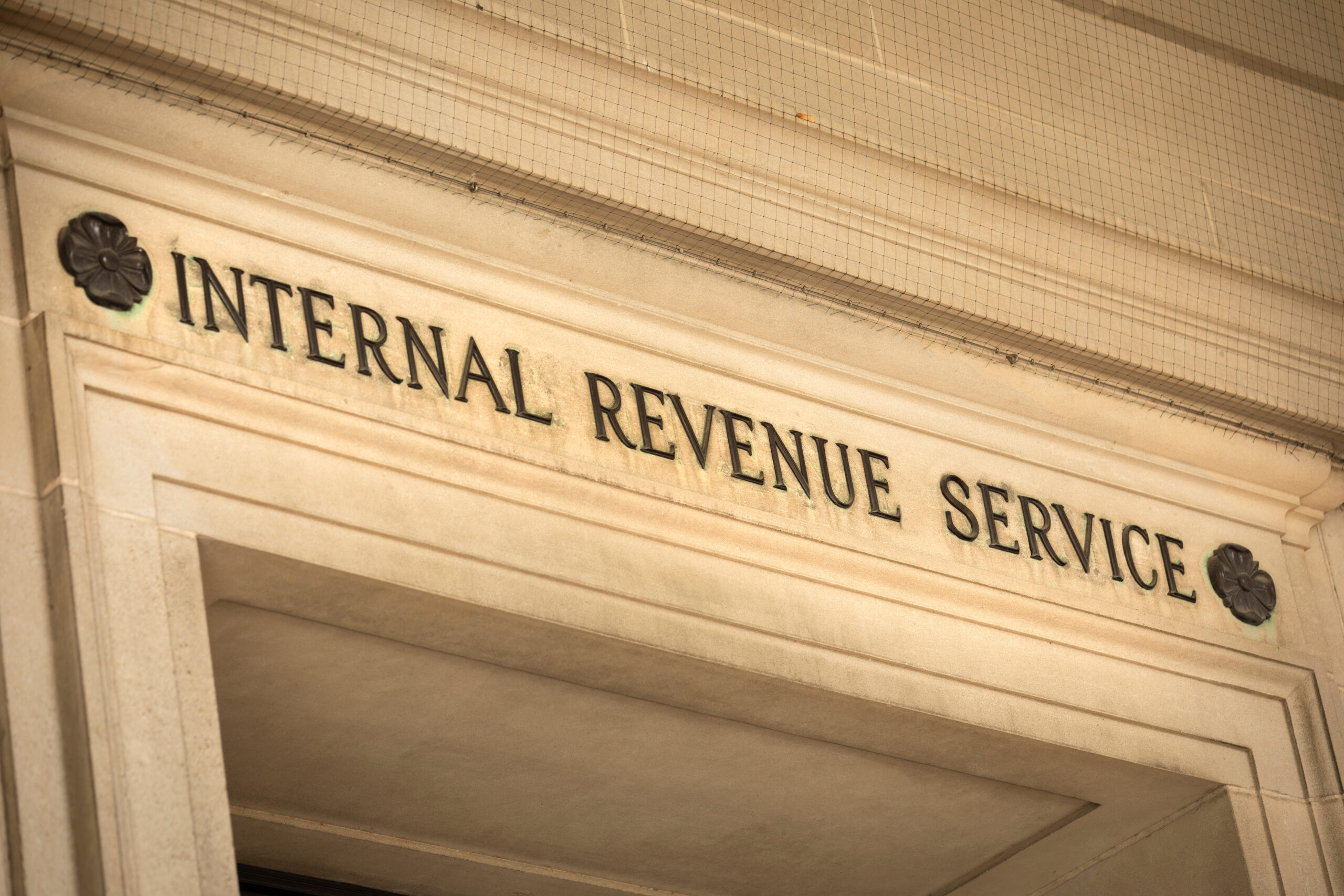Payroll Tax Problems: Why Business Owners Face Higher Risk — And What to Do
Understanding IRS Enforcement When Employment Taxes Go Unpaid
Rappaport Tax Relief — Connecticut
Payroll taxes are often one of the most stressful issues a business owner can face. Unlike income tax debt, payroll tax liabilities involve money that was withheld from employees’ paychecks for federal obligations. Because those funds are considered trust fund taxes, the IRS treats unpaid payroll taxes differently and often more aggressively than other types of tax debt.
Many business owners fall behind during periods of cash flow strain, unexpected expenses, or rapid growth. What begins as a temporary financial challenge can quickly escalate into a serious IRS matter. Understanding why payroll taxes carry higher enforcement risk — and how to approach resolution strategically — can help business owners move forward with greater clarity.
Rappaport Tax Relief works with businesses throughout Connecticut dealing with complex IRS issues, including payroll tax enforcement and negotiations.
Why Payroll Taxes Are Treated Differently by the IRS
Payroll taxes include federal income tax withholding as well as Social Security and Medicare contributions taken from employee wages. Because these funds are collected on behalf of employees and the government, the IRS views them as a priority for enforcement.
When payroll taxes go unpaid, the IRS may initiate additional collection actions beyond those typically used for individual tax debt. This heightened scrutiny reflects the agency’s focus on protecting employee withholdings and maintaining compliance within the business community.
Business owners are often surprised by how quickly enforcement escalates compared to other tax obligations. Recognizing this difference early can help prevent misunderstandings about the seriousness of the situation.
How Payroll Tax Debt Develops
Payroll tax problems often begin during periods when a business faces financial pressure. Owners may choose to prioritize payroll, rent, or vendor payments while postponing tax deposits with the intention of catching up later. Over time, penalties and interest accumulate, making the balance harder to resolve.
In some cases, businesses continue operating successfully while payroll taxes remain unresolved, which can create a false sense of stability. The IRS typically monitors payroll compliance closely, and unresolved balances may eventually trigger field collection activity or additional enforcement measures.
Understanding how quickly payroll tax debt grows helps explain why early action can make a meaningful difference.
The Trust Fund Recovery Penalty Explained
One of the most serious consequences of unpaid payroll taxes is the Trust Fund Recovery Penalty. This penalty allows the IRS to hold certain individuals personally responsible for the portion of payroll taxes withheld from employees.
The agency evaluates who had authority over financial decisions within the business and who was responsible for ensuring tax deposits were made. Owners, officers, or even managers may be considered during this review process depending on the circumstances.
The table below provides a general overview of how payroll tax enforcement differs from typical individual tax debt.
| Issue | Payroll Tax Debt | Individual Tax Debt |
|---|---|---|
| Source of Funds | Employee withholdings | Personal income |
| Enforcement Focus | Protecting trust fund taxes | Collecting outstanding balance |
| Personal Liability Risk | Possible under Trust Fund Recovery Penalty | Less common |
| Collection Approach | Often more aggressive | Varies based on financial status |
Understanding these distinctions can help business owners recognize why payroll tax matters often require immediate attention.
What Happens When Payroll Taxes Remain Unresolved
When payroll tax liabilities continue without resolution, the IRS may increase enforcement efforts. This can include liens, levies, and in some cases direct interaction with business operations. The agency may also conduct interviews to determine responsibility for unpaid trust fund taxes.
These actions can create stress for both business owners and employees, particularly when the future of the business feels uncertain. Addressing the issue early often helps preserve more options for resolution and reduces the risk of personal liability.
Recognizing that enforcement follows a structured process allows business owners to respond strategically rather than reactively.
Why Communication with the IRS Matters
Many business owners hesitate to contact the IRS because they worry that doing so will accelerate enforcement. In reality, demonstrating a willingness to resolve the issue often opens the door to negotiation and alternative solutions.
Providing accurate financial information and maintaining compliance moving forward can influence how the IRS evaluates a business’s situation. This process requires careful planning, especially when multiple tax periods are involved.
Clear communication helps shift the conversation from enforcement to resolution, which is often the turning point in a payroll tax case.
Building a Long-Term Resolution Strategy
Resolving payroll tax debt usually involves more than addressing the immediate balance. Business owners often need to review cash flow, operational expenses, and compliance procedures to prevent future issues from arising.
Some businesses restructure payment plans or adjust financial processes to ensure ongoing tax deposits remain current. Others explore resolution programs that align with their long-term financial outlook.
The goal is not only to resolve the existing debt but to create stability moving forward. Understanding the IRS’s expectations and planning accordingly can help business owners regain confidence in their operations.
How Rappaport Tax Relief Helps Connecticut Businesses Navigate Payroll Tax Issues
Rappaport Tax Relief works with business owners across Connecticut who are facing payroll tax enforcement and complex IRS negotiations. Each case begins with reviewing IRS records, evaluating financial information, and identifying potential resolution paths that reflect the business’s current reality.
Rather than focusing solely on immediate relief, the firm considers how each decision affects the long-term future of the business and its leadership. This strategic perspective helps clients move forward with greater clarity while working toward a sustainable outcome.
Guidance during this process can reduce uncertainty and help business owners focus on rebuilding stability.
Moving Forward After Payroll Tax Challenges
While payroll tax issues can feel overwhelming, many businesses are able to recover once a structured plan is in place. Understanding the IRS’s priorities, addressing compliance moving forward, and creating a realistic resolution strategy can transform a difficult situation into an opportunity for growth.
Taking action does not mean the business has failed. Instead, it reflects a commitment to resolving the issue responsibly and protecting the future of the company and its employees.
Speak with a Tax Professional About Payroll Tax Problems
If your business is dealing with unpaid payroll taxes or concerns about IRS enforcement, speaking with an experienced tax resolution professional can help clarify your options. A thoughtful evaluation can reveal strategies that align with both your financial situation and long-term goals.
Rappaport Tax Relief assists Connecticut business owners in navigating payroll tax issues and developing clear paths toward resolution. Schedule a confidential consultation today to discuss your situation and take the next step toward restoring stability and confidence in your business.
The Truth About IRS Penalties in Connecticut and How to Get Them Removed
For many Connecticut taxpayers, the most frustrating part of tax debt is not the original tax bill. It is the penalties that pile on quietly month after month. What may have started as a manageable balance can balloon into something far more intimidating once penalties and interest take hold.
The IRS imposes penalties automatically. They do not require a special decision, investigation, or warning. Once triggered, they continue to accrue until the underlying issue is resolved.
Understanding how IRS penalties work, why they are assessed, and when they can be reduced or removed is essential for anyone trying to regain control of a tax situation.
Why IRS Penalties Exist
The IRS uses penalties to encourage compliance. From its perspective, penalties are not punitive. They are meant to discourage late filing, late payment, and repeated noncompliance.
In practice, penalties often hit taxpayers who are already struggling. Financial hardship, business disruptions, medical issues, and life events are common reasons people fall behind. The IRS does not automatically factor those circumstances in when penalties are assessed.
Penalties are applied by formula. Relief must be requested.
The Most Common IRS Penalties Connecticut Taxpayers Face
Failure-to-file penalties are among the most severe. They accrue monthly and can grow quickly, especially when returns are filed years late. Failure-to-pay penalties apply when taxes are filed but not paid in full. These penalties continue accruing until the balance is resolved.
Accuracy-related penalties may be assessed when the IRS believes income was underreported or deductions were overstated. Estimated tax penalties are common for self-employed individuals and small business owners who do not make sufficient quarterly payments.
Each penalty has its own rules, triggers, and relief standards.
How Penalties Quietly Compound the Problem
One of the most overlooked aspects of IRS penalties is how they interact with interest. Interest accrues not only on the original tax balance, but also on penalties once they are assessed.
Over time, this compounding effect can cause balances to grow far beyond what taxpayers expect. Many Connecticut residents are shocked to learn that penalties and interest now represent a substantial portion of what they owe.
This growth continues even when the IRS is not actively enforcing collection.
Why Penalties Are Often Assessed Automatically
The IRS relies heavily on automation. When deadlines are missed or payments are late, penalties are triggered without a human review. The system does not evaluate intent, hardship, or circumstances.
This is why two taxpayers with very different situations may receive identical penalties. The difference comes later, when relief is requested and evaluated.
Understanding that penalties are not personal decisions helps clarify why relief is possible in the right circumstances.
When IRS Penalties Can Be Removed
IRS penalty abatement is not rare, but it is not automatic. Relief depends on eligibility and proper presentation.
Reasonable cause is one common path. This involves demonstrating that circumstances beyond your control prevented compliance. Serious illness, natural disasters, unavoidable business disruptions, and reliance on incorrect professional advice may qualify.
Another option is first-time penalty abatement. Taxpayers with a clean compliance history may qualify for relief even without extraordinary circumstances.
The key is knowing which option applies and requesting it correctly.
Why Many Penalty Abatement Requests Fail
Many penalty abatement requests are denied not because relief was unavailable, but because the request was incomplete or poorly presented. Vague explanations, missing documentation, or misunderstanding eligibility requirements often lead to rejection.
Timing also matters. In some cases, requesting abatement too early or without addressing compliance issues can weaken the request.
This is why penalty relief should be part of a broader resolution strategy, not a standalone attempt.
Connecticut-Specific Factors That Matter
Connecticut taxpayers often face both federal and state penalties. While this article focuses on IRS penalties, state penalties follow different rules and timelines.
Confusing the two systems can result in incomplete relief. Addressing one without the other may leave ongoing exposure.
Additionally, Connecticut has a high concentration of professionals, small business owners, and dual-income households. Complex income structures often increase the likelihood of estimated tax penalties and reporting errors.
Understanding how these factors interact with IRS penalty rules is critical.
Why Penalty Relief Is Often Overlooked
Many taxpayers assume penalties are non-negotiable. Others believe relief is reserved for extreme cases. As a result, penalty abatement is often overlooked entirely.
In reality, penalties are one of the most flexible parts of the IRS system when approached correctly. Removing penalties can dramatically reduce total balances and make resolution options far more manageable.
Ignoring penalties means leaving money on the table.
How Rappaport Tax Relief Helps Connecticut Taxpayers
Rappaport Tax Relief helps Connecticut taxpayers identify which penalties apply, whether relief is available, and how to request it effectively.
The process begins with a detailed review of the tax account, compliance history, and circumstances surrounding the penalties. From there, Rappaport Tax Relief integrates penalty abatement into a broader resolution plan designed to reduce balances and prevent future issues.
Each case is approached with a focus on accuracy, documentation, and long-term stability.
Reducing the Balance Is Often the Turning Point
For many taxpayers, penalty relief is the difference between feeling trapped and seeing a path forward. Lower balances open the door to better payment terms and less financial strain.
Addressing penalties is not about avoiding responsibility. It is about correcting outcomes that do not reflect a taxpayer’s true situation.
Take Action Before Penalties Grow Further
IRS penalties do not stop accruing on their own. The longer they remain unaddressed, the larger the balance becomes.
If you live in Connecticut and are dealing with growing tax penalties, now is the time to evaluate whether relief is available. Rappaport Tax Relief offers consultations to help taxpayers understand their options and take meaningful steps toward resolution.
Reach out today to review your situation and find out whether IRS penalties can be reduced or removed.
What Happens When the IRS Files a Tax Lien—and What It Actually Means for You
Few IRS actions cause as much panic as a federal tax lien. For many taxpayers, the word “lien” immediately triggers fear of losing property, ruined credit, or imminent seizure.
While a tax lien does not mean the IRS is taking your property tomorrow, it is one of the most powerful collection tools the government has. And once it is filed, the rules of the game change.
Understanding what a tax lien actually does, how it affects your financial life, and what options may still exist after filing is critical to protecting yourself.
What a Federal Tax Lien Really Is
A federal tax lien is the government’s legal claim against your property due to unpaid tax debt. It attaches to all current and future assets, including real estate, vehicles, bank accounts, and business property.
Unlike a levy, a lien does not seize assets. It establishes priority.
Once a lien is filed, the IRS becomes a secured creditor.
When the IRS Files a Tax Lien
Tax liens are typically filed after:
Multiple notices have gone unanswered
A balance remains unresolved
The IRS believes its interest must be protected
Liens are often filed alongside or shortly before more aggressive enforcement.
What a Tax Lien Actually Affects
A lien impacts far more than people realize. It can affect:
Property sales and refinancing
Business credit and financing
Professional licensing
Certain employment background checks
Even if credit scores are not immediately destroyed, the lien follows the property until resolved.
Lien vs. Levy: A Critical Distinction
A lien is a claim.
A levy is a seizure.
Many taxpayers assume a lien is the end of the road. In reality, it is often a warning shot before more aggressive action.
Why Waiting After a Lien Is Filed Is Dangerous
Once a lien exists, the IRS has little incentive to delay further action. If the case continues unresolved, levies often follow.
Early response may preserve options like lien withdrawal or subordination. Waiting usually eliminates them.
How the IRS Prioritizes Its Lien
| Factor | What the IRS Evaluates | Why It Matters |
|---|---|---|
| Filing date | When the lien was recorded | Determines creditor priority |
| Property type | Real estate vs personal property | Affects enforcement strategy |
| Existing liens | Mortgages or secured debts | Impacts collection leverage |
| Tax balance | Size and age of debt | Influences urgency |
| Compliance | Filed returns and payments | Affects negotiation flexibility |
| Asset equity | Value after senior liens | Determines seizure potential |
Can a Tax Lien Be Removed or Modified?
In some cases, yes. Options may include:
Lien release after debt satisfaction
Lien withdrawal under qualifying programs
Lien subordination to allow refinancing
Each option has strict criteria and timing requirements.
Why Liens Make Everything Harder
A lien restricts movement. Selling assets, borrowing money, or restructuring finances becomes significantly more difficult.
This is why addressing a lien quickly—and correctly—matters.
How Rappaport Tax Relief Handles Tax Lien Cases
Rappaport Tax Relief evaluates tax lien cases with a focus on protecting assets and restoring financial flexibility. By managing IRS communication and exploring lien-specific solutions, the firm helps clients regain control rather than remain stuck.
If the IRS has filed a tax lien against you—or you believe one may be coming—waiting can reduce your options. Speaking with a knowledgeable tax resolution professional can help you understand what the lien means and what steps may still be available. Call Rappaport Tax Relief today to schedule a consultation and get experienced guidance on resolving tax liens.
The Difference Between IRS Notices That Can Be Ignored—and the Ones That Can’t
IRS letters all look the same to most taxpayers. White envelopes, dense language, reference numbers, and payment demands that blur together after a while.
That familiarity is dangerous.
Some IRS notices truly are informational. Others are legal thresholds that, once crossed, give the IRS new enforcement powers. The problem is that many taxpayers don’t know which is which until enforcement has already begun.
Understanding the difference between IRS notices that can be delayed and those that require immediate action is critical to protecting your income, assets, and remaining options.
Why the IRS Sends So Many Notices
The IRS is required by law to follow a notice sequence before enforcing collection. Each notice serves a procedural purpose and documents the IRS’s attempts to secure voluntary compliance.
Not all notices are equal. Some are warnings. Others are prerequisites to enforcement.
Ignoring the wrong one can change your case permanently.
Informational Notices vs. Enforcement Notices
Many early IRS notices simply inform you of a balance due, missing return, or discrepancy. These notices are often automated and do not immediately trigger enforcement authority.
However, later notices are legal gateways. Once they are issued and the response window passes, the IRS is allowed to take action without further warning.
Taxpayers who assume all notices are “just reminders” often lose critical protections without realizing it.
Notices That Are Often Low-Risk (At First)
Early balance-due notices typically fall into this category. While they should not be ignored indefinitely, they do not immediately grant the IRS levy or lien authority.
These notices are often an opportunity window—one that closes if action is not taken.
Notices That Should Never Be Ignored
Certain notices are legally significant. These include Final Notices of Intent to Levy and notices that provide appeal rights.
Once these notices are issued and deadlines pass, the IRS gains enforcement authority that is difficult to reverse.
Missing these deadlines is one of the most common ways taxpayers lose leverage.
Why Timing Matters More Than Content
Many IRS notices look intimidating, but the real issue is timing. Some notices give you thirty days to respond. Others give less.
Once a deadline passes, rights expire automatically. The IRS does not remind you again.
What Happens When You Ignore the Wrong Notice
Ignoring an enforcement-triggering notice can lead to:
Bank levies
Wage garnishments
Federal tax liens
Revenue Officer assignment
At that point, the conversation shifts from resolution to damage control.
Why DIY Interpretation Is Risky
IRS notice codes and language are not written for taxpayers. They are written to satisfy legal requirements.
Misreading a notice—or assuming it means something it does not—can eliminate appeal rights or resolution options permanently.
How Rappaport Tax Relief Helps Decode IRS Notices
Rappaport Tax Relief helps clients identify which notices require immediate action and which allow strategic breathing room. By intervening at the right moment, the firm works to stop escalation before enforcement begins.
If you’re receiving IRS notices and aren’t sure which ones matter most, guessing can be costly. Speaking with a tax resolution professional can help you understand what’s urgent and what can be handled strategically. Call Rappaport Tax Relief to schedule a consultation and get clarity before deadlines pass.
What to Do If the IRS Is Threatening to Seize Property in Connecticut
When the IRS threatens to seize property, it means your tax situation has reached an advanced enforcement stage. For Connecticut taxpayers, this moment often comes after months or years of unresolved notices, unfiled returns, or failed payment arrangements. Property seizure is not the IRS’s first move, but once it is on the table, timelines shorten and options narrow quickly.
This guide explains how IRS property seizure works, which notices signal real risk, what types of property are vulnerable, and what Connecticut taxpayers can do to stop or reverse enforcement before irreversible damage occurs. Understanding the process early gives you the best chance to protect assets and regain control.
How IRS Property Seizure Fits Into the Collection Process
IRS property seizure is a form of levy. A levy allows the IRS to take property or rights to property to satisfy unpaid federal tax debt. Unlike private creditors, the IRS does not need to go to court if it follows federal notice requirements.
The process begins with assessment of tax and billing notices. If those notices go unanswered, the IRS escalates toward enforcement by issuing a Final Notice of Intent to Levy. Only after that notice and a mandatory waiting period can the IRS legally seize property.
For Connecticut residents, this means the IRS can reach bank accounts, wages, vehicles, business assets, and in limited circumstances real estate.
Notices That Signal Property Seizure Risk
Not all IRS notices carry the same weight. Early notices request payment. Later notices warn of enforcement authority.
CP14 is the initial balance due notice. CP501 and CP503 are reminder notices that increase urgency. CP504 is a Notice of Intent to Levy that signals enforcement preparation, often referencing state tax refunds or other assets.
The most serious notice is LT11, also known as Letter 1058. This is the Final Notice of Intent to Levy and Notice of Your Right to a Hearing. LT11 triggers a 30-day statutory window. If no action is taken within that window, the IRS may proceed with levies, including property seizure.
When the IRS Can Legally Seize Property
The IRS can seize property only after it has assessed the tax, sent required notices, and allowed the full 30-day response period following LT11 to expire. Seizure is typically reserved for cases where the IRS believes other collection methods will not succeed or where there is significant equity in assets.
For Connecticut taxpayers with real estate, investment property, or valuable business assets, seizure risk increases when balances are large and compliance has been inconsistent.
Types of Property the IRS May Seize
The IRS prioritizes assets that are easy to liquidate. Common levy targets include bank accounts, wages, and accounts receivable. Physical property seizures may involve vehicles, rental property, business equipment, or real estate.
While the IRS exercises caution with primary residences, it can seek approval to seize real property under certain conditions. State homestead protections do not override federal tax law.
How the Property Seizure Process Works
Once levy authority exists, the IRS identifies the target asset and issues a levy. Bank accounts may be frozen and turned over after a holding period. Physical property may be tagged with seizure notices and scheduled for sale.
Seized property is typically sold at public auction, with proceeds applied to the tax debt after costs. If the sale does not cover the full balance, collection efforts may continue.
Because seizure results in permanent loss, intervention before this stage is critical.
Enforcement Tools and Immediate Remedies
| Enforcement Action | What the IRS Can Take | Immediate Remedies |
|---|---|---|
| Federal tax lien | Legal claim against property | Payment, offer in compromise, lien withdrawal or subordination |
| Bank levy | Funds in bank accounts | Levy release request, installment agreement |
| Wage levy | Ongoing portion of wages | Hardship review, payment plan |
| Property seizure | Vehicles, real estate, business assets | CDP appeal, negotiated resolution |
This comparison shows why early action matters. Remedies become more limited once seizure begins.
How to Stop Property Seizure Before It Happens
Several actions can stop seizure if taken on time. Filing a Collection Due Process request within the LT11 window generally pauses levy action while Appeals reviews the case. Entering into an installment agreement or qualifying for currently not collectible status can also halt enforcement.
Offers in compromise may be appropriate when full payment would cause economic hardship, but they must be submitted correctly and with full documentation.
What to Do If Seizure Is Already Imminent
If seizure appears imminent, time is critical. Immediate contact with the IRS, proper filing of appeals, and presentation of financial hardship documentation may prevent asset loss. Delays can result in irreversible outcomes.
How Rappaport Tax Relief Helps Connecticut Taxpayers
Rappaport Tax Relief assists taxpayers across Connecticut by reviewing IRS notices, identifying enforcement risk, and pursuing the fastest available relief to protect assets. Early involvement often prevents seizure altogether. Later involvement focuses on damage control and resolution.
Bottom Line for Connecticut Taxpayers
When the IRS threatens to seize property, enforcement authority is active or imminent. This stage is serious, but it is not always final. Federal law provides notice requirements and appeal rights that can stop or reverse enforcement if used correctly.
If you live in Connecticut and have received notices suggesting property seizure, Rappaport Tax Relief offers complimentary consultations to review your situation and explain practical next steps before irreversible action occurs.
How Far Back Can the IRS Go for Unpaid Taxes in Connecticut?
Connecticut taxpayers dealing with old tax problems often assume that time alone solves the issue. Many people believe that after a certain number of years, unpaid taxes disappear. In reality, IRS time limits are complex, and misunderstanding them can lead to costly mistakes.
This guide explains how far back the IRS can assess and collect unpaid taxes, the difference between assessment and collection timelines, what events extend those timelines, and why Connecticut taxpayers should rely on verified data rather than assumptions.
Assessment Versus Collection: Two Different Clocks
The IRS operates under two separate statutes of limitations. One governs how long the IRS has to assess tax. The other governs how long it has to collect after assessment.
Assessment is the formal recording of tax liability. Collection is the enforcement of payment through liens, levies, and payment agreements. Confusing these two timelines often leads taxpayers to believe debts are expired when they are not.
How Far Back the IRS Can Assess Tax
In most cases, the IRS has three years from the date a return is filed to assess additional tax. However, several exceptions frequently apply.
If no return was filed, there is no statute of limitations on assessment. The IRS can assess tax for that year at any time. This is particularly relevant for Connecticut taxpayers with gaps in filing history.
If income was understated by more than 25 percent, the IRS has six years to assess. If fraud is involved, there is no time limit.
How Long the IRS Has to Collect After Assessment
Once tax is assessed, the IRS generally has ten years to collect the debt. This is known as the Collection Statute Expiration Date, or CSED.
The ten-year clock starts at assessment, not when the return was due. For older tax years, this distinction often surprises taxpayers.
Events That Extend the Collection Period
The collection clock does not always run continuously. Certain actions pause or extend it.
Filing an offer in compromise pauses the clock while the offer is pending. Filing bankruptcy suspends collection during the case and for additional time afterward. Requesting a Collection Due Process hearing also pauses the clock.
Because of these pauses, many Connecticut taxpayers find their tax debt remains collectible far longer than expected.
Why Old Tax Debt Rarely Expires Quietly
Although tax debt can expire under statute, the IRS often enforces long before that happens. Wage garnishment, bank levies, and liens frequently occur years before expiration.
Waiting without a plan usually leads to enforcement rather than relief.
How to Determine Whether Your Tax Debt Is Still Collectible
The only reliable way to determine collectibility is to review IRS account transcripts and identify assessment dates and tolling events. Guessing based on tax year alone is risky.
Rappaport Tax Relief helps Connecticut taxpayers analyze transcripts, confirm expiration dates, and decide whether strategic resolution or statute-based planning makes sense.
Timeline Overview for Connecticut Taxpayers
| Stage | Typical Timeframe | Key Risk |
|---|---|---|
| Assessment | Up to 3 or 6 years, unlimited if unfiled | Unexpected assessments |
| Collection period | 10 years from assessment | Enforcement before expiration |
| Tolling events | Varies | Extended collection window |
This overview shows why timing matters and why professional review is valuable.
Bottom Line for Connecticut Taxpayers
The IRS can go back indefinitely to assess unfiled or fraudulent tax years and generally has ten years from assessment to collect. Extensions and pauses frequently lengthen that timeline.
If you have old tax debt in Connecticut, understanding exactly how far back the IRS can go is the foundation for choosing the right resolution strategy. Rappaport Tax Relief offers complimentary consultations to review IRS timelines and explain realistic options under federal law.
Why IRS Problems Escalate Quietly — Until They Don’t
Most IRS problems don’t start with panic.
They start with something far more dangerous: calm.
A letter arrives. It looks official, but not urgent. The balance due is uncomfortable, but not catastrophic. Life keeps moving. Weeks pass. Then months. More letters arrive, each one slightly firmer than the last.
Nothing dramatic happens — until suddenly, something does.
A bank account is frozen. A paycheck is smaller. A lien appears during a routine credit check. At that moment, the IRS problem no longer feels administrative. It feels personal.
What surprises most taxpayers isn’t that the IRS escalates. It’s how quietly that escalation happens.
The Early Phase: When IRS Issues Feel Manageable
IRS issues almost always begin in a low-pressure phase. The notices are informational. The tone is neutral. The assumption is that the issue will be resolved voluntarily.
This phase creates a false sense of security.
Because there’s no immediate consequence, people assume they have time. Some plan to call later. Others expect to pay when finances improve. Many simply don’t understand what the notice means and set it aside.
This is the most dangerous phase of IRS escalation — because it feels harmless.
Why the IRS Appears Patient at First
The IRS is required to follow a process. Notices must be sent. Deadlines must be provided. Opportunities to respond must be given.
This makes the agency appear patient.
Behind the scenes, however, the account is moving forward. Interest and penalties accrue daily. Missed responses are logged. Risk profiles are updated.
Silence doesn’t pause the system. It advances it.
How Escalation Happens Without Obvious Warning
Escalation doesn’t begin with enforcement. It begins with unanswered communication.
Each notice slightly changes in tone. Deadlines become more explicit. Consequences are referenced more directly. The format looks the same, which is why many people don’t realize how serious things have become.
By the time enforcement begins, the IRS believes it has already given ample opportunity to resolve the issue voluntarily.
The Psychological Trap of Delay
Tax problems trigger fear, embarrassment, and uncertainty. Avoidance feels easier than engagement.
People delay because they don’t want to say the wrong thing, don’t have the money yet, or don’t know what options exist. Unfortunately, delay almost always reduces options rather than preserving them.
From the IRS’s perspective, silence signals noncompliance.
What Pushes a Case Into Active Collections
Some cases escalate simply due to time. Others escalate faster because of specific triggers.
Common escalation triggers include:
• Ignoring multiple IRS notices
• Filing returns without paying balances owed
• Having unfiled returns on record
• Defaulting on payment agreements
• Large income discrepancies
Once these patterns appear, the IRS prepares for enforcement.
When Escalation Becomes Disruptive
For most people, escalation becomes real when daily life is affected.
Wage garnishments reduce take-home pay. Bank levies freeze access to funds. Tax liens complicate loans, refinancing, and property sales.
At this stage, options still exist — but they are narrower, more technical, and time-sensitive.
What’s Happening Inside the IRS Before Enforcement
While nothing appears to be happening externally, the IRS is categorizing the case internally. Automated systems flag accounts. Revenue officers may become involved.
By the time enforcement occurs, the IRS believes the matter is overdue.
Why Early Action Preserves Control
Before enforcement begins, taxpayers still have leverage.
Payment options are more flexible. Penalty relief may be available. Negotiations are calmer. Mistakes are less costly.
Once enforcement begins, the focus shifts from prevention to damage control.
How IRS Problems Affect More Than Money
IRS escalation affects far more than finances.
Stress increases. Sleep suffers. Family decisions get delayed. Business opportunities feel risky. The issue becomes a constant background worry.
What began as a paper problem becomes a life problem.
Why Waiting Rarely Improves the Outcome
Many people hope time will help. In reality, time almost always benefits the IRS.
Balances grow. Penalties compound. Enforcement authority expands.
Waiting may feel easier emotionally, but it rarely leads to a better resolution.
How Rappaport Tax Relief Helps Stop Escalation
At Rappaport Tax Relief, clients across Connecticut come to us when IRS issues feel confusing, overwhelming, or already out of control.
Our focus is on identifying where a case sits in the IRS process, what actions are already underway, and how to stop further escalation before enforcement causes unnecessary damage.
Early intervention preserves options. Strategic action protects assets, income, and peace of mind.
Take Action Before the IRS Forces the Issue
If you’ve received IRS notices, have unfiled returns, or aren’t sure how serious your situation has become, waiting is rarely the safest choice.
Call Rappaport Tax Relief today to speak with a tax professional who can help stop IRS problems from escalating and guide you toward resolution.
The earlier you act, the more control you keep.
Received an IRS CP504 in Connecticut? Why This Notice Is the IRS’s Last Serious Warning
For many Connecticut taxpayers, an IRS CP504 notice doesn’t feel urgent at first. It looks similar to other IRS letters, uses vague language, and often arrives without any immediate consequences. That false calm is exactly why CP504 causes so much damage.
By the time CP504 is issued, the IRS has already made a key determination: voluntary compliance has failed. From that point forward, the agency is preparing to collect — not negotiate casually.
This article explains what CP504 actually means, why Connecticut taxpayers often underestimate it, and what must happen next to avoid enforced collection.
What Is an IRS CP504 Notice?
CP504 is commonly labeled “Notice of Intent to Levy — State Tax Refund.” While that title suggests the IRS is only targeting refunds, the reality is broader.
CP504 tells you:
The IRS has assessed tax debt
Prior notices were sent and ignored or unresolved
Your account is now eligible for enforced collection actions
This is one of the final steps before the IRS begins levies.
Why CP504 Changes the IRS’s Posture
Earlier IRS notices are billing attempts. CP504 marks a shift from requests to warnings.
Once CP504 expires, the IRS can:
Garnish wages
Levy bank accounts
Offset refunds
Escalate enforcement without further correspondence
Many Connecticut taxpayers assume the IRS must send another “final” notice. Often, CP504 is that notice.
How Much Time Do You Really Have?
CP504 typically provides 30 days to respond.
Those 30 days are not a suggestion. They are a legal threshold. Once the deadline passes:
Appeal rights may be lost
Collections may begin immediately
Negotiation leverage decreases sharply
Waiting for a “better time” usually results in fewer options.
Can the IRS Take Action Without Going to Court?
Yes. Unlike private creditors, the IRS does not need a court judgment to levy wages or bank accounts. Federal tax law grants that authority once required notice has been given — which CP504 satisfies.
Why CP504 Is Often Ignored in Connecticut
We see the same patterns repeatedly:
High earners assume they’ll “deal with it later”
Business owners prioritize cash flow over compliance
Taxpayers wait for an accountant who isn’t handling collections
Fear of contacting the IRS leads to inaction
Unfortunately, none of these delay enforcement.
What Happens After CP504 Is Ignored?
Once CP504 expires, the IRS may move quickly:
Wage garnishment orders sent to employers
Bank accounts frozen without warning
Liens filed against real property
Refunds intercepted automatically
At that point, stopping enforcement becomes far more difficult.
Resolution Options That May Still Exist
Even at the CP504 stage, options may include:
Installment agreements
Currently Not Collectible status
Penalty abatement
Offer in Compromise
Appeals or collection holds
The correct option depends on income, assets, filings, and timing.
The Real Cost of Waiting
Every day CP504 goes unanswered:
Interest compounds
Penalties increase
Stress escalates
The IRS gains leverage
What could have been a controlled resolution becomes reactive damage control.
When to Get Professional Help
If you’ve received CP504 and:
Owe more than $10,000
Have unfiled returns
Own a business or rental property
Have received multiple IRS notices
You should not wait.
Rappaport Tax Relief helps Connecticut taxpayers respond strategically to IRS escalation notices and stop enforcement before it begins.
Why the IRS Thinks You Underreported Income — And How to Fix It Before It Becomes a Bigger Problem
It’s not unusual for taxpayers across Connecticut to receive a letter from the IRS claiming they underreported income. It happens in Hartford, Stamford, Bridgeport, New Haven, Waterbury, Norwalk, Danbury, and in the smaller shoreline and inland towns as well. The letter may reference “income discrepancies,” a CP2000, or a proposed adjustment to your return. No matter the format, the message is the same: the IRS believes you earned more than you reported.
For most Connecticut residents, this feels confusing, stressful, and sometimes insulting. But the truth is that these notices are extremely common — especially in a state where people often have multiple income streams, complex payroll structures, investment portfolios, and high mobility between jobs. Many underreporting notices come from simple mismatches rather than actual errors.
Rappaport Tax Relief helps taxpayers across Connecticut resolve these notices and prevent escalation into liens, levies, or audits. Understanding why the IRS thinks you underreported is the first step toward correcting the issue effectively.
What the IRS Means by “Underreported Income”
When the IRS claims you underreported income, they aren’t necessarily accusing you of fraud. They are saying that the income on your tax return does not match the documents they have in their system — documents submitted by employers, contractors, payment processors, banks, staffing agencies, financial institutions, brokerages, or government benefit programs.
The IRS receives these forms automatically:
W-2s
1099-NECs
1099-MISCs
1099-Ks
1099-INT
1099-DIV
1099-R
1099-B
W-2Gs
Certain state-issued income forms
If even one of these is missing or reported differently from your return, the IRS system identifies the discrepancy.
In Connecticut, the issue often stems from the state’s mobility, high levels of professional employment, and mixed W-2/1099 income patterns.
Why Underreporting Notices Are So Common in Connecticut
Connecticut’s economic structure differs from many other states. It has a high concentration of:
Financial professionals
Healthcare workers
Insurance sector employees
Remote workers with out-of-state employers
Manufacturing and aerospace workers
Teachers and public-sector employees
Consultants and contractors
High-income households with investment activity
That diversity makes income reporting more complicated — and mismatches more likely.
Multiple job changes throughout the year
Many Connecticut taxpayers change roles, departments, or employers in the middle of a calendar year. When that happens, W-2s may be mailed to old addresses or sent digitally without the taxpayer noticing.
Out-of-state employers and remote work
Countless Connecticut residents work for companies based in New York, Massachusetts, California, or elsewhere. These employers sometimes issue forms with state coding errors, duplicate state lines, or multi-state W-2 complexities that lead to mismatches.
High concentration of investment accounts
Between Fairfield County, Hartford County, and shoreline communities, many residents hold:
Brokerage accounts
Mutual funds
Stock compensation plans
RSUs
ESPPs
Retirement distributions
When cost basis is missing or incorrect, the IRS assumes the entire sale amount is taxable.
Side income and consulting
Connecticut has a large number of professionals who pick up consulting, tutoring, contracting, design work, or seasonal income on the side. These gigs issue 1099s — often digital ones that taxpayers overlook.
Payment platform confusion
Venmo, PayPal, Zelle, and Cash App transactions sometimes trigger 1099-Ks, even when they involve personal transfers or sales of old items at a loss.
Union and public-sector payroll issues
Corrections, retroactive pay, and multi-department payroll shifts often cause mismatching W-2s.
Gambling wins
Connecticut residents who visit Mohegan Sun, Foxwoods, or nearby casinos in Rhode Island and New York may receive W-2Gs. Without documented losses, the IRS taxes the entire amount.
Family financial support
Transfers used to help aging parents, grown children, or relatives are common. The IRS software does not distinguish these from income unless clarified.
These patterns create fertile ground for underreporting notices — but also for successful corrections once reviewed by a professional.
The Notice Most People Receive: CP2000
The CP2000 outlines the income the IRS believes you earned, what you reported, and the proposed difference. It often lists a tax increase plus additional penalties and interest.
Despite how it looks, it is not a final bill. It is a proposal.
Many Connecticut taxpayers assume they must pay it. But more often than not, the IRS is working with incomplete or incorrect data.
Rappaport Tax Relief regularly reduces or eliminates CP2000 assessments by providing proper documentation.
Common Connecticut Scenarios That Trigger Underreporting Notices
A financial-sector employee receives multiple tax documents
Someone working in Stamford or Hartford may receive W-2s, RSU forms, stock sale statements, and corrected 1099s. Missing even one creates a mismatch.
A remote employee works for a company based in another state
Multi-state W-2 coding errors are common and easily misunderstood by IRS software.
A healthcare worker has multiple roles
Nurses, CNAs, and technicians often work for two or more facilities. A forgotten W-2 is one of the most common triggers.
A consultant or contractor receives unexpected 1099s
Short-term projects and side clients often issue 1099s months after work is completed.
A taxpayer sells personal items
A 1099-K for selling old furniture or electronics is misread as profit.
A retiree withdraws from multiple accounts
Pensions, IRAs, and 401(k)s may issue different statements, and a single mismatch leads to a notice.
A teacher receives a stipend or extra compensation
Grants, extracurricular pay, or one-time bonuses may generate additional forms.
A taxpayer supports multiple family members
Transfers can look like unreported business income when the IRS analyzes bank data.
These situations are common across the state — and fixing them is possible once the details are properly reviewed.
How Rappaport Tax Relief Fixes Underreporting Problems
Step 1: Pulling IRS transcripts
Rappaport retrieves your Wage & Income Transcript, revealing exactly what documents the IRS has on file. Often, taxpayers only discover a missing W-2 or unexpected 1099 when reviewing this transcript.
Step 2: Comparing IRS records with your actual documentation
The team reviews your W-2s, 1099s, investment statements, retirement distributions, and bank activity to determine what the IRS misinterpreted.
Step 3: Identifying non-income deposits
Connecticut residents often move money for family support, shared expenses, loan repayments, or personal transfers. These must be explained clearly to the IRS.
Step 4: Preparing corrections or an amended return
In some cases, the return needs to be updated. In others, the IRS’s assumption is wrong, and the issue is resolved by supplying documentation and explanation.
Step 5: Drafting a well-organized response
A clear, professionally structured response dramatically increases the chance of the IRS reducing or eliminating the proposed balance.
Step 6: Preventing escalation
If needed, Rappaport requests a collection hold to prevent the situation from becoming a lien, levy, or garnishment while the dispute is reviewed.
Why Responding on Your Own Can Make Things Worse
Many taxpayers unintentionally escalate the problem by:
Agreeing to IRS numbers they don’t actually owe
Sending too much information
Missing critical documentation
Making statements that open the door for deeper IRS review
Ignoring the notice until it becomes a bill
Handling the notice quickly and correctly is essential.
Final Thoughts
IRS underreporting notices are extremely common in Connecticut due to the state’s complex income structures. Multi-job households, investment activity, remote work arrangements, side gigs, and recurring payroll corrections all create situations the IRS’s automated system misinterprets.
The good news is that most underreporting issues are fixable with the right documentation and strategy.
Rappaport Tax Relief helps Connecticut taxpayers correct these notices, reduce inflated assessments, and prevent unnecessary IRS enforcement actions.
Why Connecticut Residents Are Seeing Larger Balances on IRS Notices
Connecticut taxpayers often receive IRS letters showing balances far higher than expected. These adjustments typically come from automated systems.
Multiple Income Streams
CT residents often have:
Remote work income
Commuter job income
Side income
Investment accounts
Any discrepancy triggers an IRS recalculation.
Incorrect Credits
Credits for children, education, and insurance are common sources of IRS corrections.
State-Level Changes
When Connecticut updates your state return, the IRS may use that data to adjust the federal return.
Rappaport Can Help
Rappaport Tax Relief reviews each notice, challenges incorrect figures, and negotiates directly with the IRS to protect clients from enforcement.









